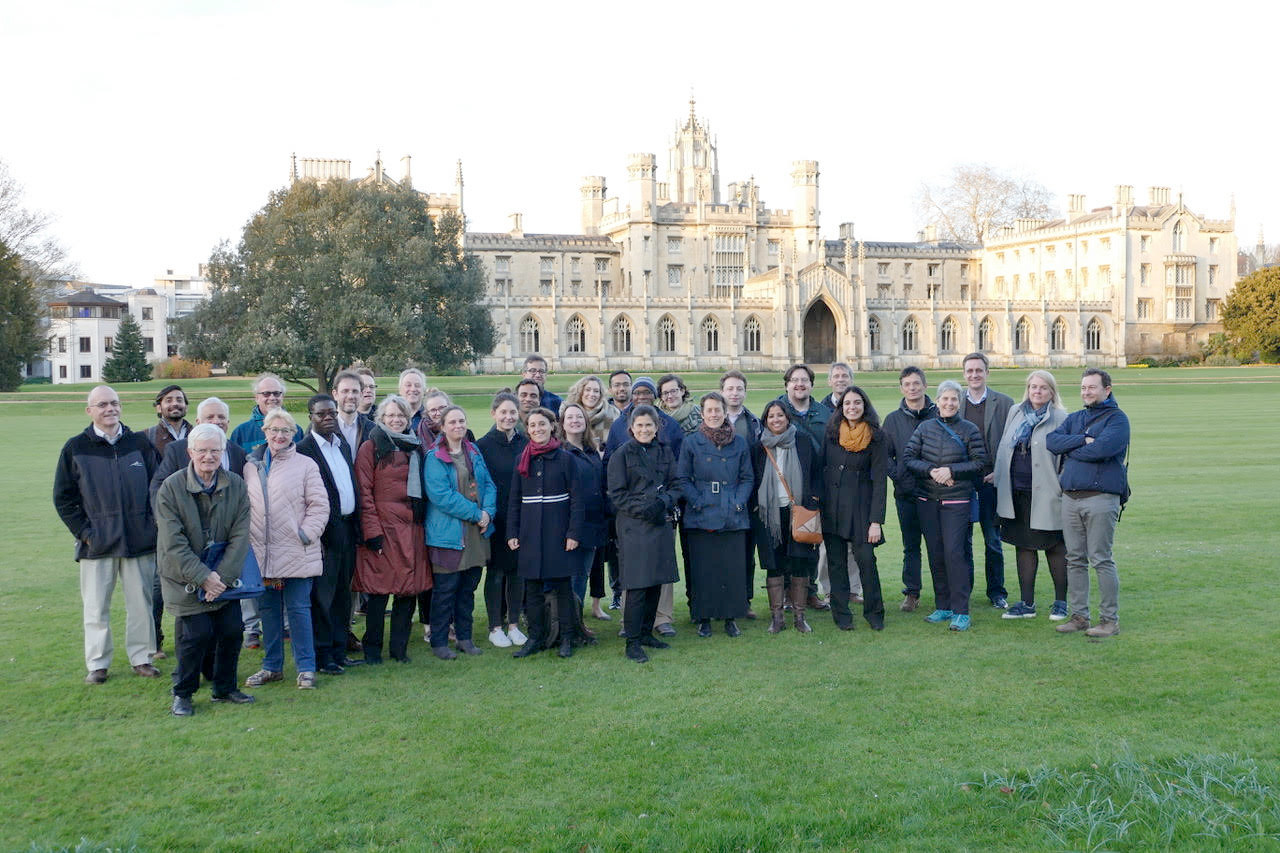Bhalisa 3 | Jesus and St Johns Colleges, Cambridge | March 19 - 21, 2019
Call for Participation |
Full list of Participants |
Panels & Papers |
Ross's Liveblog |
2017 Meeting |
Bhalisa 3 | Cambridge | Panels
See the list of panels below.

The third biennial workshop of the Bhalisa network takes its focus from an important new problem for economics, governance and justice in countries with histories of weak state administration: Does machine-based identification strengthen or weaken the dispersed and delegated processes of registration of the poor and the marginal? This key problem unsurprisingly has led to questions in the realm of law and policy, in civil registration in general, and at the interface of machine learning, particularly with fast-developing private credit markets in poor countries. In this workshop we aim to develop criteria across fields and regions for evaluating how investments in digital technologies of identification and credit risk assessment effect the less visible administrative processes of civil registration.
Venue: The workshop will take place in the Webb Library at Jesus College, Cambridge, UK
For a detailed summary of the discussion at this event see Ross Anderson's live blog at https://www.lightbluetouchpaper.org/2019/03/19/future-id/.
|
Day 1 -- March 19, 2019 |
|||
| Introductions and opening | |||
| Day 1 : 9:00 to 9:30 | Subhashish | Bhadra | Omidyar Research |
1 Global comparisons of ID systems |
Ross | Anderson | What's in a name? The changing nature of identity, online and off |
| Day 1 : 9:30 to 11:15 | Eddie | Higgs | Facial biometrics and the new physiognomy |
| Chair : Keith Breckenridge | Wendy | Hunter | Undocumented Americans |
| Amba | Kak | (Re)claiming data colonization?: Interrogating official narratives from India, China and Europe | |
| Ian | Watson | The Nordic ID Model: A Guidepost for the Future or a Relic from the Past? | |
| Refreshments | |||
2 Competing Models of Privacy and Data Regulation |
Edwin | Abuya | Access to Information & Privacy Rights: Reviewing the East African Record |
| Day 1 : 11:30 to 13:00 | Gautam | Bhatia | Aadhaar and Privacy |
| Chair : Jon Klaaren | Marianne | Henriksen | Current developments in Norwegian population registration, digital-ID and biometric capture |
| Jonathan | Klaaren | Participation in Financialized Markets in Africa: Regulatory Pluralism in Privacy, Competition, and Registration Regimes | |
| Ranjit | Singh | Memory practices of Platforms: Aadhaar as a Know-Your-Resident Modality | |
| Lunch | |||
3 Credit surveillance as alternative or platform for civil registration |
Johann | Bezuidenhout | Breaking service exclusion barriers using alternative approaches to Functional Credential Registration and Issuance |
| Day 1: 14:00 to 15:30 | Roland | Claussen | Predictive power of (German) credit information, and its application to microfinance lending in East Africa |
| Chair : Edgar Whitley | Gabriel | Davel | Credit Markets in Africa: Potential & limitations of technology and digital credit to overcome traditional constraints to credit supply |
| Bulelani | Jili | Chinese social scoring and African surveillance states | |
| Refreshments | |||
4 Comparative Costs and Benefits of ID and Registration Projects |
Bidisha / Syed Mohammed | Chaudhuri / Faisal | Examining the Foundational versus Functional ID Debate |
| Day 1 : 16:00 to 17:30 | Marielle | Debos | The marketing of Electoral biometrics in Africa: Politics, Business and Expertise |
| Chair : Keith Breckenridge | Alan | Gelb | Technology and Capacity: Insights from Applications of Aadhaar |
| Jaap | van der Straaten | Of Democracy and Elections in Africa—In Reverse | |
| Day 2 -- March 20, 2019 | |||
5 Practical inclusion, or how to walk the last mile |
Amiya | Bhatia | Changes in birth registration coverage between 1999 and 2015 in low and middle-income countries: Are wealth and geographic inequalities decreasing? |
| Day 2 : 9:00 to 10:45 | Laura | Bingham | The Last Mile, Do No Harm and the Bottom Up: The Promise of Civil Society and Community Engagement in Implementing Goal 16.9 |
| Chair : Mia Harbitz | Sanjay | Dharwadker | Emerging incompatibilities between border crossing and national identification frameworks |
| Ursula | Rao | Re-spatializing social security, or how to relate hierachical states to decentral e-services | |
| Refreshments | |||
6 Statelessness, border-marking and migration |
Natalie | Brinham | Destroying identities across borders: Rohingya refugees and biometric registration |
| Day 2 : 11:00 to 12:30 | Fernando | de Medina Rosales | Obstacles faced by displaced persons to access civil registration and identification: NRC’s field experiences |
| Chair : Bronwen Manby | Eves | Hayes de Kalaf | (Re)Organising Citizens: Legal Identity, Access to Documentation and Race in Contemporary Latin America |
| Bronwen | Manby | Civil registration and the creation of statelessness among migrants and refugees in North Africa | |
| Emrys | Schoemaker | Identity at the Margins: Examining Refugee Experiences withDigital Identity Systems in Lebanon, Jordan, and Uganda | |
| Lunch | |||
7 Registration and administration |
John | Effah | National versus Sector Biometric Identification Systems in Ghana: Motivations, Contradictions and the Way Forward |
| Day 2 : 14:00 to 15:30 | Christian | Lund | Another Fine Mess |
| Chair : SImon Szreter | Cláudio | Machado Cavalcanti | The failed institutionalization of biometric identification in Brazil and its implications |
| Alena | Thiel | Database interoperability and the rehabilitation of administrative population data in Ghana | |
| Ornit | Shani | Registering Voters In the World’s Largest Democracy: Trajectories from India’s First Elections | |
| Refreshments | |||
| 8 Closing session | |||
| Day 2 : 16:00 to 17:00 | |||
 |
With support from the Omidyar Network and the Centre for Global Equality |
